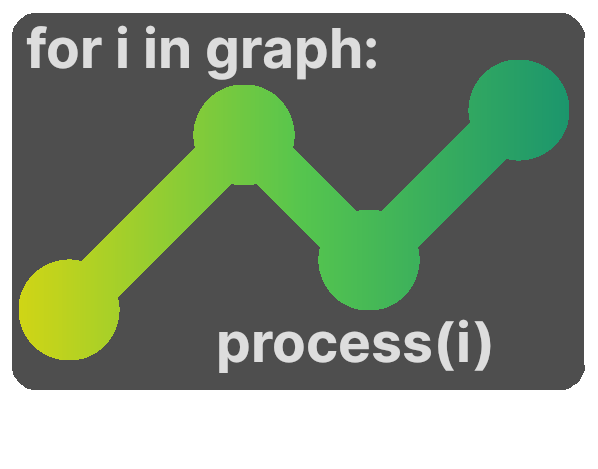
If you find any issues / have any comment, please contact kg@ebrains.eu to give us your feedback!

Basics
These are some basic queries to get started with the syntax of the query api.
Minimal payload
Request
{
"@context": {
"@vocab": "https://core.kg.ebrains.eu/vocab/query/",
"propertyName": {
"@id": "propertyName",
"@type": "@id"
}
},
"meta": {
"type": "https://openminds.ebrains.eu/core/DatasetVersion"
},
"structure": [
{
"path": "@id"
}
]
}
Response
Expected: 200
{
"data": [
{
"@id": "foo bar"
},
...
],
"message": null,
"error": null,
"startTime": 1644935130702,
"durationInMs": 36,
"transactionId": null,
"total": 1245,
"size": 20,
"from": 0
}
Reducing arrays to objects for single values
When only a single field (at a specific level in the tree) is requested Structure can be defined as an object instead of an array of objects
Request
{
"@context": {
"@vocab": "https://core.kg.ebrains.eu/vocab/query/",
"propertyName": {
"@id": "propertyName",
"@type": "@id"
}
},
"meta": {
"type": "https://openminds.ebrains.eu/core/DatasetVersion"
},
"structure": {
"path": "@id"
}
}
Specifying a non existing field
Request
{
"@context": {
"@vocab": "https://core.kg.ebrains.eu/vocab/query/",
"propertyName": {
"@id": "propertyName",
"@type": "@id"
}
},
"meta": {
"type": "https://openminds.ebrains.eu/core/DatasetVersion"
},
"structure": {
"path": "non_existing_field"
}
}
Response
Expected: 200
{
"data": [
{
"non_existing_field": null
},
...
],
"message": null,
"error": null,
"startTime": 1644935130702,
"durationInMs": 36,
"transactionId": null,
"total": 1245,
"size": 20,
"from": 0
}
Renaming a property to a custom name
Request
{
"@context": {
"@vocab": "https://core.kg.ebrains.eu/vocab/query/",
"propertyName": {
"@id": "propertyName",
"@type": "@id"
}
},
"meta": {
"type": "https://openminds.ebrains.eu/core/DatasetVersion"
},
"structure": [
{
"propertyName": "foo",
"path": "@id"
},
{
"propertyName": "bar",
"path": "https://openminds.ebrains.eu/vocab/fullName"
}
]
}
Response
Expected: 200
{
"data": [
{
"foo": "foo value",
"bar": "bar value"
},
...
],
"message": null,
"error": null,
"startTime": 1644937956881,
"durationInMs": 29,
"transactionId": null,
"total": 1245,
"size": 20,
"from": 0
}
Semantic properties
You should aim for semantically correct defined properties - even if you're renaming them. To do so, you can specify the property name in a compact IRI format
Request
{
"@context": {
"@vocab": "https://core.kg.ebrains.eu/vocab/query/",
"query": "https://schema.foo.bar/myQuery/",
"propertyName": {
"@id": "propertyName",
"@type": "@id"
}
},
"meta": {
"type": "https://openminds.ebrains.eu/core/DatasetVersion"
},
"structure": [
{
"propertyName": "query:foo",
"path": "@id"
},
{
"propertyName": "query:bar",
"path": "https://openminds.ebrains.eu/vocab/fullName"
}
]
}
Response
Expected: 200
{
"data": [
{
"https://schema.foo.bar/myQuery/foo": "foo value",
"https://schema.foo.bar/myQuery/bar": "bar value"
},
...
],
"message": null,
"error": null,
"startTime": 1644937956881,
"durationInMs": 29,
"transactionId": null,
"total": 1245,
"size": 20,
"from": 0
}
Simplify a response with "responseVocab"
By adding a "responseVocab" to the meta section of the query, the extra complexity of the full IRI representation (see above) can be removed
Request
{
"@context": {
"@vocab": "https://core.kg.ebrains.eu/vocab/query/",
"query": "https://schema.foo.bar/myQuery/",
"propertyName": {
"@id": "propertyName",
"@type": "@id"
}
},
"meta": {
"type": "https://openminds.ebrains.eu/core/DatasetVersion",
"responseVocab": "https://schema.foo.bar/myQuery/"
},
"structure": [
{
"propertyName": "query:foo",
"path": "@id"
},
{
"propertyName": "query:bar",
"path": "https://openminds.ebrains.eu/vocab/fullName"
}
]
}
Response
Expected: 200
{
"data": [
{
"@context": {
"@vocab": "https://schema.foo.bar/myQuery/"
},
"bar": "bar value",
"foo": "foo value"
},
...
],
"message": null,
"error": null,
"startTime": 1644938488274,
"durationInMs": 29,
"transactionId": null,
"total": 1245,
"size": 20,
"from": 0
}
Ensuring order of properties
If you are not familiar with linked data in general, this might feel odd to you: If an instance links to multiple other objects (e.g. a Dataset pointing to its authors), in a graph database, the way they are ordered is not ensured by default. This is because the array of links becomes actual graph edges which do not keep the state between themselves. In many cases, this is not a problem since most of the time, the order within the specified links doesn't matter. Sometimes it is crucial though since the order carries implicit meaning. A perfect example for this is the mentioned "author" list where it is important if a contributor is first or last author.
The query API by default therefore doesn't maintain the order of insertion when returning items. However, it allows you to explicitly request the order by specifying the "ensureOrder" property to true:
Request
{
"@context": {
"@vocab": "https://core.kg.ebrains.eu/vocab/query/",
"path": {
"@id": "path",
"@type": "@id"
}
},
"meta": {
"type": "https://openminds.ebrains.eu/core/DatasetVersion"
},
"structure": {
"path": "https://openminds.ebrains.eu/vocab/custodian",
"ensureOrder": true,
"structure": {
"path": "@id"
}
}
}
Response
Expected: 200
{
"data": [
{
"https://openminds.ebrains.eu/vocab/custodian": [
{
"@id": "https://kg.ebrains.eu/api/instances/a7745fd1-f4b7-4118-a88b-7f57758c836e"
},
...
]
},
...
],
"message": null,
"error": null,
"startTime": 1645024403178,
"durationInMs": 29,
"transactionId": null,
"total": 144,
"size": 20,
"from": 0
}
